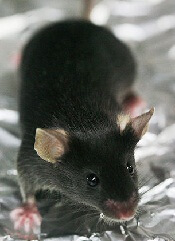
/* Style Definitions */
table.MsoNormalTable
{mso-style-name:"Table Normal";
mso-tstyle-rowband-size:0;
mso-tstyle-colband-size:0;
mso-style-noshow:yes;
mso-style-priority:99;
mso-style-parent:"";
mso-padding-alt:0in 5.4pt 0in 5.4pt;
mso-para-margin-top:0in;
mso-para-margin-right:0in;
mso-para-margin-bottom:10.0pt;
mso-para-margin-left:0in;
line-height:115%;
mso-pagination:widow-orphan;
font-size:11.0pt;
font-family:"Calibri","sans-serif";
mso-ascii-font-family:Calibri;
mso-ascii-theme-font:minor-latin;
mso-hansi-font-family:Calibri;
mso-hansi-theme-font:minor-latin;}
Previous studies have shown that inhibiting the activity of the Malt1 protein can kill lymphoma cells.
Now, research published in Cell Reports has revealed that it also causes the immune system to malfunction.
Malt1 carries out a variety of tasks in lymphocytes, including acting as a protease that breaks down messenger substances and controls their quantity.
Until now, researchers were unsure about the role the protease function plays in immune cell development.
Several years ago, Jürgen Ruland, PhD, of Technische Universität München in Germany, and his colleagues turned their attention to this question.
Via cell culture experiments, the researchers found that blocking the protease function of Malt1 kills lymphoma cells. The team decided to test this strategy in an animal model to shed light on the exact function of Malt1 protease.
“It’s only possible to study complex interactions in the immune system, which comprises a finely orchestrated interplay of various cell types, in an intact organism, not in cell cultures,” Dr Ruland noted. “The processes are too complex to recreate in cells outside the body.”
The mice the researchers used were genetically modified so their Malt1 protein could no longer act as a protease but was still able to carry out all of its other functions.
The team was surprised to find that these mice developed severe signs of inflammation. Moreover, the immune system attacked and destroyed key neurons that coordinate movements.
The researchers were able to explain how this serious malfunction occurred and, in doing so, discovered an unexpected function of Malt1.
They found that, in the absence of the protease function, the mice were unable to produce regulatory T cells, and this caused their immune responses to spin
out of control.
The team also found that normal lymphocytes can be activated without the protease function of Malt1, but they release messenger substances uncontrollably, which causes inflammation.
“Our study showed that Malt1 protease is surprisingly important for the development of regulatory T cells and for damping the immune response in general,” Dr Ruland said. “Since the blockade of the protease function in the organism produces undesirable effects, new alternatives should urgently be sought for the treatment of lymphoma.”

